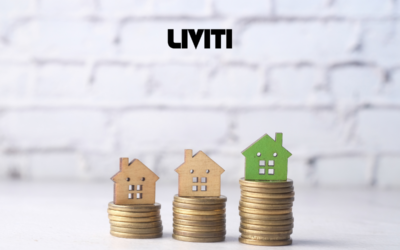It has always been challenging to save enough money for a deposit to purchase a property. Despite generations of Australians having to skip the countless movie and dinner dates, borrow money from family and friends, or choose scrambled eggs on toast for breakfast at their parents’ house instead of smashed avo at the neighbourhood café.
Even if that goal is met, ongoing mortgage payments remain to be considered.
Of course, saving for a deposit has never been more difficult with the cost of living continuing to rise. One way the first home buyer and investors reduce upfront costs of purchasing a home or an investment property is by using lenders mortgage insurance (LMI).

What is Lenders’ Mortgage Insurance (LMI)?
LMI, also known as Lenders Mortgage Insurance, is insurance that a lender takes out to protect them from the risk of not covering the outstanding loan balance if the borrower can’t meet the loan payments and the property is sold for less.
How is this different from Mortgage Protection Insurance?
Mortgage Protection Insurance is designed to protect borrowers and their ability to repay their mortgages in the event of death, sickness, disability, injury, or unemployment that could impact their ability to pay their mortgage successfully.
How does lender’s mortgage insurance work?
Now that we’ve defined what LMI is, let’s break down how it works!
The threshold for LMI varies between all banks and financial institution. Those who borrow more than 80% of their property’s purchase price will usually pay lenders’ mortgage insurance (Some banks don’t charge this until 90%).
If you do not have the required home loan deposit, which is typically 20% of the property value, the lender will typically require LMI, and the cost will likely be charged to you (the borrower) as a fee, and gets added to your loan. The price is based on the amount of the deposit you have saved. A more affordable LMI will be obtained with a larger deposit. On the other side, a lower deposit will mean a higher LMI
By paying for an LMI it means that you are able to purchase a property sooner!

What Are the Benefits of Lenders’ Mortgage Insurance for Homeowners?
Having less than a 20% deposit allows many homeowners to enter the real estate market sooner, with the help of LMI. It enables owners to obtain a mortgage with a deposit of as little as 5% of the purchase price if the lender is satisfied with their income and prospects for repayment. This significantly streamlines first-time buyers’ entry into the market by cutting down on the time needed to save for a significant down payment.
An important consideration for first-time home buyers is that when using lender’s mortgage insurance to get into the property market quicker, you’ll need to borrow a little more. But you won’t need to pay this upfront, you can just add it to your loan!
What Are the Benefits of Lenders’ Mortgage Insurance for Investors?
LMI is frequently seen as a key component of an investor’s strategy and can be a significant facilitator for those trying to establish a investment portfolio of several properties. Lenders mortgage insurance permits a lower deposit requirement, allowing investment properties to be bought with a higher loan ratio (LVR, Loan to value ratio), maximising the leverage benefit.
Since the LMI fee is considered a “business expense” and is typically capitalised back into the loan amount, the net impact on monthly cash flow is low. Additionally, the costs of LMI are likely to be added as tax deductions that can be reduced over the first five years of the investment property.

What are negative gearing and leverage?
If you are thinking about investing, you may have heard the terms “negative gearing” and “leverage.”
What is negative gearing?
In simple terms, negative gearing is when an investment property’s expenses (including interest, maintenance, insurance, strata, council rates, and depreciation) are bigger than the income made on the property (rent or rental income). That is, more money is going out per year than is coming in.
What is leveraging?
In investing, the phrase “leveraging” simply refers to borrowing to increase the potential return of an investment. For example taking out a mortgage to buy a home is a form of leverage.

Who can claim mortgage insurance on a tax return?
Investors can claim lenders mortgage insurance as a tax-deductible under borrowing costs. These are the borrowing expenses you might incur when obtaining a loan to purchase a property. Some borrowing costs include:
- Loan establishment fees
- Lender’s mortgage insurance (insurance taken out by the lender and billed to you)
- Title search fees are charged by your lender.
- Costs for preparing and filing mortgage documents (including solicitors’ fees)
- Mortgage broker fees
- Stamp duty
- Valuation fees
- Strata costs
- Land Tax
- Body corporate fees
- Council rates
The tenant’s maintenance and upkeep expenses, e.g. pest control, cleaning, gardening, water, gas, and electricity, cannot be claimed.
How do I claim a tax deduction?
Investors can claim a deduction for all eligible borrowing costs for five years or spread it over the term of the loan, whichever is shorter. However, suppose the total deductible borrowing expenses are $100 or less. In that case, they are fully deductible in the income year you incur them.
Suppose LMI is incurred halfway through the year. In that case, the deductible portion corresponds to the days the property was available on the rental market.

Can I still claim LMIs on tax if I sell my property?
If a investor decides to sell their investment property, the LMI can also be claimed against capital gains tax, if there are any.
What is Capital gains tax (CGT)
Capital Gains Tax is based on the difference between the selling price and the purchase price, which can include the sum paid for the property plus legal fees, stamp duty, and other upfront costs, as well as the value of any capital improvements (renovations) that were completed by you.
How is Capital gains tax calculated?
CGT will only apply to your home if you have used it as an income-generating asset, like an investment property.
When selling a property, take the selling price minus the asset’s original cost and related costs to calculate how much capital gains tax you’ll have to pay (like legal fees, stamp duty, etc.). Your capital gain is the balance (or loss).

Should I use LMI when purchasing a first home or an investment property?
Seek advice from a tax adviser before deciding whether paying for LMI suits you. In the short term, using LMI in the loan amount seems less painful, as you don’t have to find the funds right away, and the premium remains a deductible expense (for investors).
For example if you we’re to purchase a $400,000 property, using a $50,000 deposit, your LVR will be 87-88%. This makes your LMI premium total repayments approximately $8,868, over 30 years in addition to any other loans you may have taken out when purchasing the property. That is less than $10 per week over the life of the loan, doesn’t seem so bad now does it?

First Home Buyer Scheme that don’t require LMI
The First Home Loan Deposit Scheme (FHLDS) allows first home buyers with deposits as low as 5% to get a home loan without paying Lenders Mortgage Insurance (LMI) fees.
Based on the maximum regional price cap under the scheme, first-time homebuyers can avoid paying LMI fees by anywhere up to $30,000.
The greatest part of the scheme is that first-time homebuyers who qualify can combine it with other government initiatives. The First Home Super Saver Program, the First Home Owners Grant, and Stamp Duty concessions are a few examples.
Both investors and homebuyers can benefit greatly from an LMI.
Talk to our team today to find suitable properties for you!




